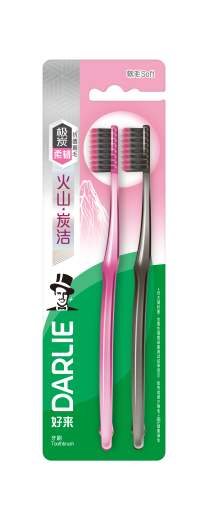Halitosis (Bad Breath) may sound scary, but the truth is, about 1 in every 4 people suffers from it1.
It’s an oral health problem where the main symptom is foul-smelling breath. Most of us has it every morning, but for some people, they experience Halitosis for a prolonged period of time. Read on to find out what may be the causes for halitosis, prevention methods, and how to treat it to get fresh breaths back!
What causes bad breath?
The key reason for halitosis is poor oral hygiene habits. Bad breath is typically caused by bacteria build-up in your mouth. Brushing properly with fluoride toothpaste can effectively kill these harmful bacteria. If you don’t maintain a healthy and regular brushing habit, you’re very likely to suffer from bad breath due to these bacteria. Other than just your teeth, the odour-causing bacteria may also live on your tongue.
Another possible cause of bad breath is dry mouth. Saliva plays an important role in removing dead cells that accumulate on your tongue, gums and cheeks. It also helps to neutralise acids produced by plaque. If your mouth doesn’t produce enough saliva, the decomposed dead cells will lead to bad breath. This is also why we have morning breath, as our mouth tends to dry up when we sleep, especially if we sleep with our mouths open.
Tobacco products also directly lead to bad breath. Not only does smoking dry your mouth, but the chemical it produces will stick to the surfaces inside your mouth. These chemicals will encourage the growth of odour-producing bacteria while also killing essential bacteria in your mouth that help to maintain your oral health.
How can you prevent bad breath?
One easy step to prevent bad breath is by drinking plenty of water. Remember, a dry mouth can be the culprit of your less-than-pleasant breath. Drinking more water can help to tackle that. Besides, it’s never a bad thing to drink more water anyway. You’d be surprised by how many people fail to drink the recommended amount of 2 litres of water per day!
You can also pay attention to the types of food that causes bad breath. Most people already know that garlic and onions cause bad breath, but coffee and alcoholic beverages may have the same effect too. They may encourage bacteria growth, and also cause a drying effect in your mouth.
Another big thing is to reduce smoking. As we've said, smoking contributes to a lot of bad breath issues. Quitting smoking will make a tremendous improvement on your health outlook, but we understand it’s extremely difficult. You can, however, consider this extra motivation for you to limit smoking, and eventually stop completely!
Are there ways to cure bad breath? What can we do to cure bad breath?
Here are four ways to maintain proper oral hygiene to keep your breath smelling fresh and clean!




